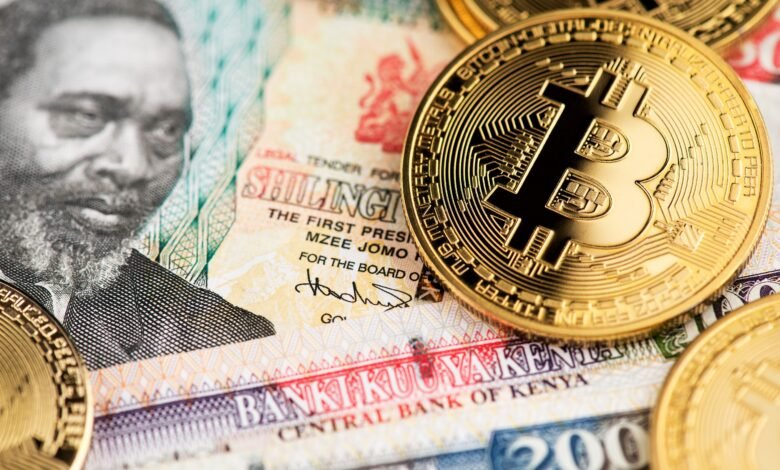Crypto-currencies : interest grows in Africa despite government resistance
Since their appearance in 2009 with the invention of the famous anonymous Satoshi Nakamoto, crypto-currencies are increasingly integrating the financial circuits in Africa, a continent that is known to be behind in technology. So much so that in 2022, the Central African Republic, after El Salvador, adopted bitcoin as its official currency.

Despite the enthusiasm of the population for this new digital financial system, states continue to resist it by adopting rejectionist postures. They are helped in this by central banks that are somewhat « overwhelmed by events ». ANA opens the file.
Bitcoin, Ethereum, Litecoin, XRP, Cardano, EOS and Monero are some of the crypto-currencies prized by Africans. This is according to the report « The 2021 Chainalysis Global Crypto Adoption Index » by Chainalysis, a blockchain analytics company, on the 20 countries in the world with the highest adoption of crypto-currencies in 2021. The boom in the crypto-currency market in Africa is such that the continent is shattering records for adoption, retail transfer and peer-to-peer (P2P) platform usage. Chainalysis notes an increase of over 1,200% in the crypto-currency market in Africa based on the value received in 2020.
This means that Africans’ interest in crypto-currencies is clearly growing. In 2021, Useful Tulips, a company that analyzes this market, reveals that « the volume of transactions in sub-Saharan Africa make it the region of the continent that acquired the most crypto-currencies. » Much more, Useful Tulips says, « sub-Saharan acquisitions are 50 percent higher than volumes in Asia-Pacific and are three times that of Latin America and twice the acquisitions of all other countries in the world combined. »
In Africa, crypto-currencies are an alternative to disastrous central bank policies
The internet is behind the rush of Africans to this new monetary technology. Indeed, in its 2021 report, the International Telecommunications Union (ITU) notes that the internet penetration rate in Africa is 40%. With an increase of 43% from December 2021 to June 2022, according to the Internet Society, which indicates that « the Covid-19 pandemic has increased the importance of the Internet in Africa. And by induced effect, the adoption of crypto-currencies in several countries on the continent.
The internet is not the only factor facilitating the adoption of crypto-currencies in Africa. According to Rakesh Sharma, an economics and technology journalist, citizens of countries hit by high inflation are likely to opt for crypto-currency. « Crypto-currencies, based on a principle of decentralization, offer an alternative to disastrous central bank policies, » she says.
According to gobitcoin.io, a news site on Bitcoin in Africa, « it is not surprising that some of these countries are among the top users of Bitcoin in Africa, which are Botswana, Ghana, Kenya, Nigeria, South Africa and Zimbabwe. » The BBC also notes that « Bitcoin is also gaining ground in Uganda.
The urgency of regulation
For African countries, crypto-currencies are not legal, being issued neither by them nor by a central bank
The rush of African countries to crypto-currencies is not without consequences. The volatility of these virtual currencies and their impact on economies, as well as the lack of transparency and a regulatory framework, are causing debate. In Africa, governments believe that « crypto-currencies are not legal tender because these digital assets are not issued by them or by a central bank. Despite the registration of transactions made in crypto-currencies in a public register promoting their traceability, African governments raise questions of transparency. They argue that « the anonymity of these transactions can encourage the development of illicit activities because they do not meet the obligations to know the originator and the beneficiary.
Faced with this situation, countries such as Morocco, Zambia, Algeria, Libya, Nigeria, Lesotho, Egypt, Zimbabwe, Namibia have banned any licensed banking and financial organization from offering or facilitating crypto-currency transactions. Other countries prefer to keep their distance from the crypto-currency sector.
Despite the call from some African authorities to regulate the crypto-currency sector, there are no developments in this direction
At the International Monetary Fund (IMF), there are also concerns about countries’ infatuation with crypto-currencies. Bo LI, its deputy managing director in charge of economic policy issues in 90 countries, and Nobuyasu Sugimoto, the deputy head of the financial supervision and regulation division in the money and capital markets department, authored an op-ed in January 2023 titled « Financial Technologies: Contagion Effects of Crypto Assets. » In which they call on international regulators to act quickly to [limit the] risks. The two experts believe that « strengthening financial regulation and oversight, as well as developing international standards, can help alleviate many concerns about crypto-assets. Because of their cross-sectoral and cross-border nature, it is no longer sufficient to follow uncoordinated national measures.
In order to ensure the success of an international approach, it will be necessary to ensure that such regulation evolves in parallel with the context and risks. » « Despite the call by some authorities (in South Africa, Malawi, Uganda or even Tunisia) to regulate the sector and the uses of crypto-currencies, no notable evolution seems to be taking shape in this direction for the moment, » write Fortuné B. Ahoulouma and Fabien Lawson, two lawyers at the Paris bar and partners LABS-NS Avocats, in an op-ed they co-signed in November 2021. They state that « this situation is a source of confusion in various countries or sub-regional spaces ». In particular in the Member States of the Economic and Monetary Community of Central Africa (CEMAC), in those of the West African Economic and Monetary Union (WAEMU), in Tunisia and in Zimbabwe.






